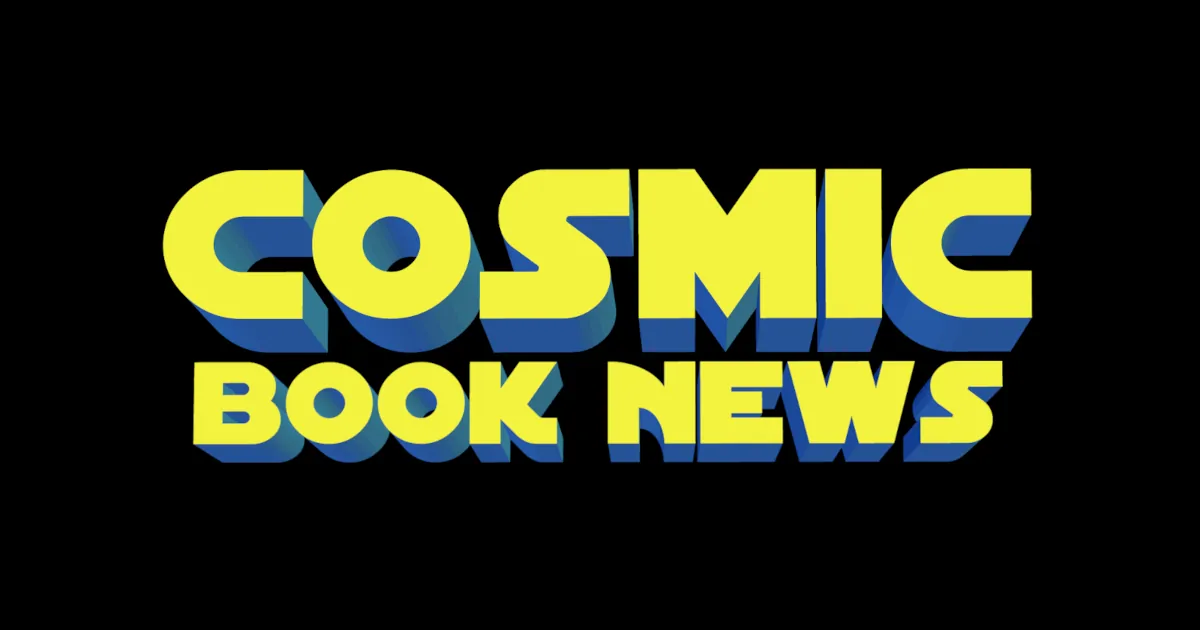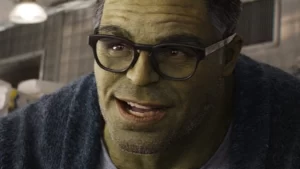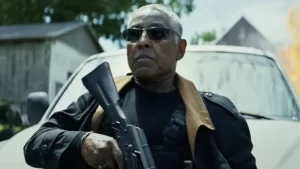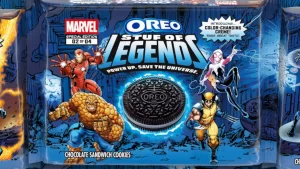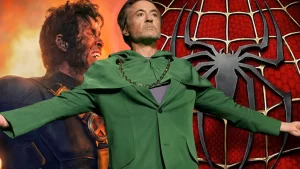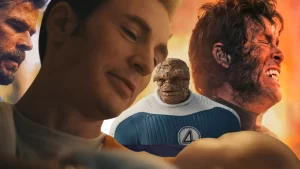Thumbs Up, Soldier!
A Film Review of Captain America: The First Avenger
By: Lawrence Napoli
 The stalwart march towards The Avengers in 2012 continues with yet another impressive prelude piece in Captain America: The First Avenger. What sets this film apart from its contemporary comic book adaptation brethren is the fact that it is a period piece partly based on a very real, tragic and iconic moment in American and global history: World War II. As a result, this film cannot be built up via whimsy, geeky exposition or some convoluted fantasy. None of that represents Captain America’s story or character nor should they ever be used to portray the war to end all wars. What the audience will experience is a somewhat campy, propagandized media reflection of the romanticized themes, ideas and images that were constructed to inspire American involvement in the war effort of that time. Cap’s story literally bridges the gap between America’s media campaign on the home front to American soldiers fighting on foreign battlefields.
The stalwart march towards The Avengers in 2012 continues with yet another impressive prelude piece in Captain America: The First Avenger. What sets this film apart from its contemporary comic book adaptation brethren is the fact that it is a period piece partly based on a very real, tragic and iconic moment in American and global history: World War II. As a result, this film cannot be built up via whimsy, geeky exposition or some convoluted fantasy. None of that represents Captain America’s story or character nor should they ever be used to portray the war to end all wars. What the audience will experience is a somewhat campy, propagandized media reflection of the romanticized themes, ideas and images that were constructed to inspire American involvement in the war effort of that time. Cap’s story literally bridges the gap between America’s media campaign on the home front to American soldiers fighting on foreign battlefields.
It was extremely clever to depict the origin story of Captain America within the framework of that character’s real world inspiration in the 1940s. He was not created to be a character that other costumed heroes would look to for leadership and guidance within the Marvel Universe. He was not even groomed to one day lead a subset of these heroes that would one day be named “The Avengers.” He was a flavor of the week; an icon like Uncle Sam to inspire and motivate Americans during an historic time of hardship. But what if the amazing feats by a comic book character were indeed based on the exploits of a real man who had performed actual feats that simply defied reason? Screenwriters Christopher Markus and Stephen McFeely explore both avenues of Cap, the icon and Cap, the “real person” of the Marvel Universe in a way that establishes Captain America with integrity, seriousness and a no-nonsense matter of fact. It is the kind of rock solid foundation that this character needs to not be mocked by today’s audience. It also elevates Captain America as a worthy man capable of leading other individuals of, shall we say, singular talents when Joss Whedon calls upon him in 2012. Top marks to the writers. The dialogue is appropriately dated without coming off as cheesy, exposition is never overburdening and the story never loses sight of Cap. Steve Rogers is every bit an American “super” soldier without losing contact with his humble personality that leads to some comedy relief, moments of solace and moments of greatness.
But none of that occurs without Chris Evans shelving the dipshit act in favor of some standard issue, heroically profound, determination. This was one of the major questions concerning whether this film or this character would be satisfying in any way, and thankfully, Mr. Evans was up to the task. Gone is Johnny Storm from the Fantastic Flops as are the smart a– characters Evans thrived at portraying in Not Another Teen Movie (2001), The Losers (2010) and Scott Pilgrim vs. The World (2010). I will not say his performance equates to the character with the same uncanny precision as Robert Downey Jr. equals Tony Stark, but it’s pretty damn close. The key element to Evans’ performance was his ability to combine innocence with sincerity to yield the prototypical everyman who just wants to do his part. Of course, leaving the character at that level alone would leave too much of a bland “aw shucks!” attitude to him, and so Evans takes it to the next level. When Cap accepts his initial role in the war effort he is apprehensive, but begins to admire the “success” he has over time. Although the Red Skull makes note of a uniquely “American arrogance” about Captain America, Evans’ performance does not reflect this at all. He takes great pains to scale back every smile and moment of satisfaction because he knows Cap values the importance of his mission above all else. When Evans becomes more assertive with his character, he never crosses the line into anger or rage, but certainly explores somberness and disappointment with himself when processing his character’s failures.
The integrity of Evans’ performance is matched only by the overall integrity of this film, to which the audience has director Joe Johnston to thank primarily. Johnston does not have the most intimidating of directing credits under his belt, but he has had success in producing pseudo-period piece projects that angle on iconic heroes with The Rocketeer (1991) and The Young Indiana Jones Chronicles (1993). The 1940s world of Captain America is no less reflective of those times while retaining a unique sense of patriotism that pays homage to Frank Capra and the golden age of cinema. Everything about this film’s composition from the brown color tones filling the frame, to the retro set pieces and the original song “Star Spangled Man” by Alan Menkin and David Zippel yields a fully formed world where the audience is eager is suspend their disbelief. With big budget films such as this, it is very easy for the director to lose sight of the importance of his cast’s performance. Chris Evans was asked about the significance of Johnston’s influence in an interview, and he stated how the two would have a conversation on set before principal photography began every day to discuss Cap’s evolution and what is meant to be highlighted in the scenes scheduled for that day. This is the kind of leadership that produces fine ensemble performances, but I was a bit concerned in the way Evans spoke of it as if it was certainly an exception to how most directors handle their casts.
And speaking of the rest of Captain America’s cast; they indeed hold up their part of the bargain, but are underplayed due to the limited minutes not devoted to an acute focus on Cap himself. Tommy Lee Jones’ gruff, deadpan command produces equal parts respect and hilarity as Colonel Philips. Hayley Atwell provides an acceptable love interest for Cap as Peggy Carter, but the potential romance between them is not a priority in this film. Stanley Tucci fills the role as a grandfatherly mentor to Cap as Dr. Erskine quite well, but is cut short of any meaningful development. I had difficulty differentiating between Sebastian Stan as Bucky and Dominic Cooper as Howard Stark because the two actors share a strong facial resemblance and both make the most of their screen time as tertiary support characters. As for the antagonist Red Skull, I felt Hugo Weaving’s performance was good, but lacking the intensity required to produce a valid threat against Cap on screen. Perhaps it is the innate Agent Smith within Weaving, but I distinctly remembered more passion as V in V For Vendetta, and he was wearing a Guy Fawkes mask for the entire film.
Although Captain America is not as physically gifted as Thor nor as visually dynamic as Iron Man, visual effects were vital to the seamless execution of this film. It begins right away with the depiction of skinny/wimpy Steve Rogers and the pasting of Chris Evans’ head on the body of a less physically imposing actor. I thought this effect was well done and a bit more believable when he is wearing a full complement of clothing. When Steve is in his undergarments in hopes of passing his physical examinations, the size of Evans’ head is far too pronounced, which breaks the validity of the illusion. I was also impressed by the rebounding animation of Cap’s vibranium shield, but I do look for accentuating greater strength in Cap’s throws and an increased speed to the shield’s movement in The Avengers. The standard execution of explosions and pyrotechnics was acceptable, but I was more taken in by the “disintegration” visuals of the Red Skull’s weapons. I was told that their unique blend of sight and sound was all but carbon copied from the Wolfenstein video games.
Captain America: The First Avenger is not only a great summer action adventure, it’s also the best of the Avenger set up pieces which I honestly did not expect in light of the massive success of the first Iron Man film. This film is very honest to the origin story of Cap’s comic book cannon, and the events of this film imply an otherworldly threat in the future by the shear presence of the cosmic cube. The Avengers are a team of super heroes capable of dealing with cosmic threats, but none of its individual members (save for Thor) are equipped to actually do so. This presents a series of a bear traps that Joss Whedon has allowed the directors for all the other Avenger films to set around him, and anything less than an epic explosion of surprise and satisfaction will save him. But it appears Chris Evans is almost giddy about how awesome The Avengers will be not just as a singular film, but the culmination of the contributions of so many others. If it’s good enough for Captain America, it’s good enough for me.

